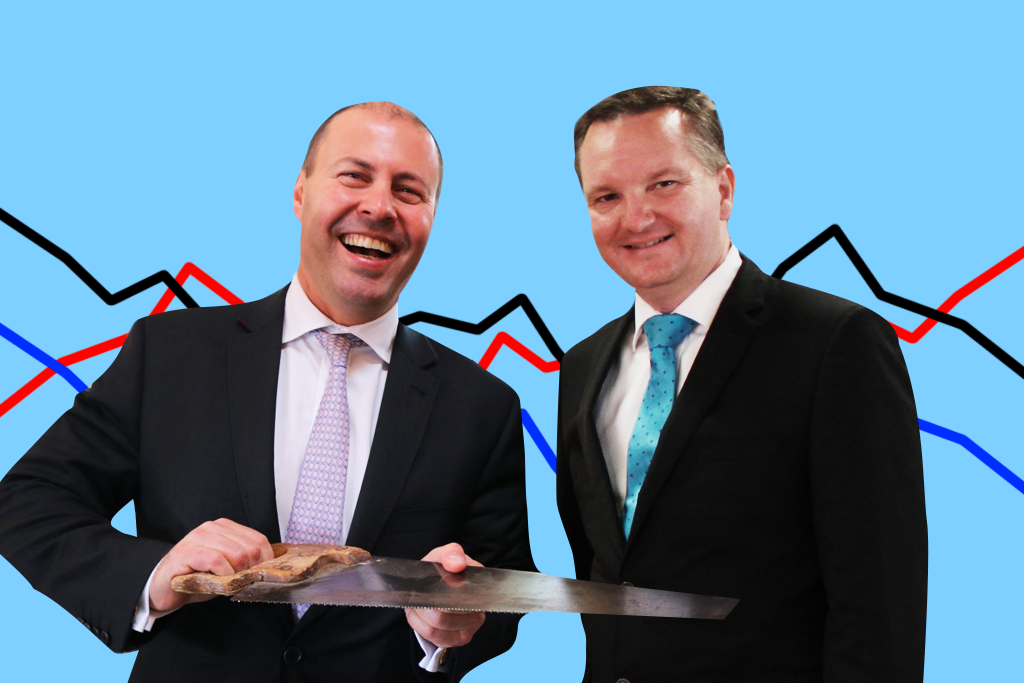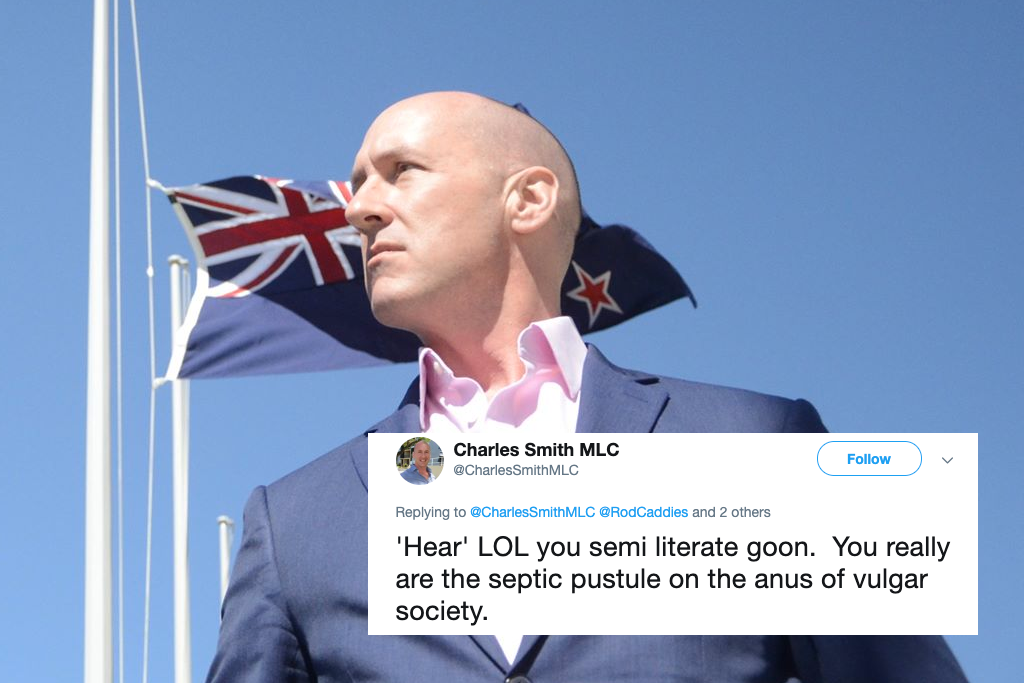Australia Needs A Green New Deal, Not More Centrism
People are taking the wrong lessons from Labor's shock defeat.

You would think the dismal election result would finally serve as tangible proof — for Laborites and progressives — that bloodlessly vague promises of stable centrism fail to inspire voters or speak to the increasingly grim realities of their lives. Sadly, however, our centrist elites still seem unable to learn from their disastrous policy decisions — instead they’re choosing to double down on ‘small-l liberalism’ and trickle-down economics.
While our politicians abjectly refuse to think big, on the other side of the world, US presidential hopeful Bernie Sanders is making the case for democratic socialism and a 21st Century Economic Bill of Rights.
Over the last six years, Labor and the Greens have failed to offer any hope radical enough for those crushed by our narrow pursuit of surplus and debt reduction. Centrists and progressives alike have failed to meaningfully grapple with the disastrous conditions facing ordinary Australians:
- For the first time in statistical history, less than half of employed Australians work in secure full-time jobs
- Youth underemployment has reached its highest levels in 40 years
- Factoring in unemployment, underemployment and “hidden unemployment,” there are now approximately 15.71 job seekers competing for every 1 job vacancy
Life in Australia for many people is now defined by uncertainty and insecurity. Many of us lurch from casual job to short contract to low-paid gig to keep ourselves afloat. Higher bills roll in relentlessly but paychecks are never a sure thing. We’re told to be grateful for increased ‘flexibility’ in the labour market when we know it’s only the bosses who benefit from keeping us at their beck and call.
These same corporations that are too stingy to pay us a decent wage are also trashing the planet, and endangering us all by recklessly polluting the atmosphere. In response to all this, we’re told we need to change our diets, switch to electric cars and spend our own money to make our homes more energy efficient — but why should we pay to fix a problem created by fossil fuel companies and the governments who enable them? We all know something’s gone very wrong with the climate, but, increasingly, it feels like there’s nothing we can do to face such a huge and complex crisis.
Rapid changes in the way we live and work are on the horizon, but our leaders still refuse to offer us a clear path through the sea of upheavals that climate change represents. Many pundits argued that voters’ “fear of change” won the election for the Coalition; however, it’s not really change Aussies are afraid of — it’s uncertainty.
People have legitimate fears of being swept aside and left behind, because so far that’s what economic restructuring has meant for their communities. Over the last 40-odd years, Australian working life has deteriorated rapidly — in 1975 we enjoyed stable full employment, but now (thanks to reckless neoliberal policy) millions of people are without secure jobs. Without a strong, progressive voice to convince them otherwise, workers assume that action on climate change will further deny them opportunities.
Time For Australia’s Green New Deal
It doesn’t have to, however. The Green New Deal resolution tabled in the United States Senate by Alexandria Ocasio-Cortez has provided a timely and inspired vision for climate and economic justice movements around the world, arguing for a rapid transition to renewable energy backed by good union jobs and public investment in housing, transport and infrastructure. The excitement behind this ambitious program has led to similar proposals in the U.K, Canada, and more recently, Australia.
The Green New Deal aims to tackle climate change and growing inequality at the same time by committing to full employment through a Jobs Guarantee, and transforming the ownership structures of the economy through a massive expansion of public works, and increased workplace democracy. In Australia, this transition is already underway, with worker-owned cooperatives in the cleaning, energy, care work and waste management sectors, while major unions are also committing to making this happen with or without federal government support.
Climate change is here + we’ve got a deadline: 12 years left to cut emissions in half.
A #GreenNewDeal is our plan for a world and a future worth fighting for.
How did we get here?
What is at stake?
And where are we going?Please watch & share widely ⬇️pic.twitter.com/IMCtS86VXG
— Alexandria Ocasio-Cortez (@AOC) April 17, 2019
The Green New Deal shouldn’t be limited to a technocratic plan to optimise Australia for maximum eco-efficiency. Instead, we should view the GND as opening up a new terrain of class struggle, a struggle over how we organise work and production as well as unpaid care; a democratic conversation about how we want to live together in the Anthropocene.
We should remember that Australians are not shy when it comes to big ideas. After all, the country was a global model in voting rights for all, the eight hour day and social welfare reform prior to World War I. The twentieth century also saw a massive cultural transformation, driven by women’s, Indigenous and queer rights movements.
The Green New Deal offers a way to face our modern crises together — a bold new path that leaves no one behind, and actually improves workers’ lives while we reckon with climate change. By (finally) addressing the needs of the millions of people denied decent jobs, we can begin to organise the kind of radical, worker-driven movement Australia was once famous for. Creating this transformative change will be tough, but if we share the burden of transitioning to a low-carbon future fairly, we can build a more just society for all.
Jeremy Poxon is a campaigner with the Australian Unemployed Workers’ Union.
Tash Heenan is a political economist and organiser with the Climate Justice Collective.
Jon Piccini is a historian at Australian Catholic University and co-host of anti-capitalist podcast Living the Dream.

